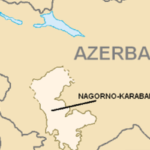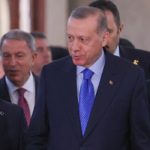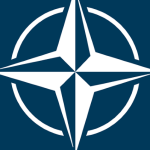by Giuseppe Morabito
"The die is cast"a proverbial phrase already used by the ancient Romans, which is still repeated when undertaking an irrevocable action. According to Suetonius, Caesar would have pronounced it when crossing the Rubicon. This phrase started an important civil war in the history of Rome, but this is not comparable with what happens today.
In these hours, every time I comment on the Russian-Ukrainian situation, I repeat that I would have never thought of a general invasion of the country by Moscow. Just as I would never have believed that President Putin would manage to "deceive" everyone, that is, to hide his real intentions until the last possible moment.
The European reaction
First of all, beyond the explicit condemnation of the unacceptable Russian military action, two considerations are obligatory.
The first is that once again Europe (united?) has demonstrated its weakness and its inability to have a common foreign or defense policy.
The second is that, precisely because of this congenital European weakness, I continue to have strong doubts about the effectiveness and the real application of the sanctions that have been and will be decided, also because in part they will backfire on those who implement them. For example, at the time of writing (Sunday, February 27) there is no certain talk of sanctions on the sale of Russian gas because Europe is in great need of them (with Italy absolutely included in the list of those in need because of its past crazy and ideological energy policies).
Italy, in its Atlantic and European vision, wants to do its part and move compactly with the rest of Europe; so much so that on Friday evening, at the NATO summit, President Draghi declared:
We have condemned in the strongest terms Russia's unjustifiably brutal attack on Ukraine. Russian behavior is the gravest threat to Euro-Atlantic security in decades and above all to our democracy and freedom. Our unity is and always will be the strongest response. We maintain a cohesive and decisive position. Italy is one of the most important contributors of troops to NATO operations. We are ready to do our part, as always, to provide the necessary forces. The reaction must be determined to avoid any ambiguity.
Negotiating prospects
In these hours the news from Kiev are chasing each other but it seems obvious the epilogue of the fights. Even Belarusian President Lukashenko has called for an end to the conflict through negotiations before it is too late. "Tomorrow will be war, and the day after tomorrow will be massacre. Therefore, if they have any brains, those lunatics of all kinds, let's make a decision and sit down the table", Lukashenko said. "It might so happen that nobody will need any negotiations tomorrow. Perhaps the victorious country simply wouldn't like to talk to anyone". Now Kiev and Moscow are preparing to hold negotiations near the Belarusian border. Perhaps there is hope.
Turkey (a NATO member country) does not cooperate with the sanctions policy. In fact, Russia has not received any official notification from Ankara about the closure to its warships of the Bosphorus and Dardanelles straits, through which the Black Sea is accessed from the Mediterranean. This despite the fact that Ukrainian President Volodymyr Zelensky had announced the closure of the straits following a phone call with his Turkish counterpart Erdogan. In the past days, Ankara had excluded the hypothesis, as if the Ukrainian-Russian issue did not concern it, but today with opportunism it signals itself as a voluntary mediator. I believe that trusting Erdogan as a mediator would be foolish, given his "ideological friendship" with President Putin.
The military situation
In these hours the Ukrainian capital Kiev is under siege. Knowing well the topography of the city, a strenuous resistance is foreseeable, because it is suitable to be defended house by house: it is very urbanized, with wide spaces and observation points. Other Ukrainian cities will be really difficult to conquer precisely because of their intense urbanization. At the same time, it is not surprising that Ukrainians are willing to resist in the face of a preponderance of Russian forces and the ability of the Kremlin's special forces, which have been publicly praised by their President.
From the military point of view it should be noted that the Russian armed forces are not destroying the Ukrainian economic system. The electricity is hardly missing, the internet system is not blocked and the railway lines in the west of the country are working. This is the only reason why we have from hour to hour the news from those who are on the spot and the possibility to follow the statements of the Ukrainian government. This is happening because Russia can't help but think about what will be post-war Ukraine and the need to resume cordial relations with its people. Moscow cannot afford to completely destroy and disrupt the Ukrainian system because it will still have to cooperate with Kiev in some way.
On the Russian side it is argued that the invasion of a (sovereign) country came about because President Putin made appeasement proposals that were rejected. I am still convinced that the Russian President had no interest in getting to the current point of military intervention.
From Ukraine to Taiwan
Without ever setting aside the evidence that diplomacy has failed, all the more so it will now be difficult to find a solution seemingly with neither winners nor losers and, above all, that does not set a precedent for similar claims, such as that of the People' s Republic of China against the Democratic Republic of China-Taiwan. Beijing "deplores" rather than "condemns" the invasion of Ukraine and in February, before the Winter Olympics, signed a strategic agreement with the Russian Federation. It abstained at the United Nations because the veto to the resolution against the invasion had already been placed by Russia and there was no need for that of PRC. To prove what has just been written, the Chinese Foreign Ministry said on Wednesday: "Taiwan is not Ukraine but has always been an inalienable part of China". As a prompt and logical response, Taiwan's President Tsai Ing-wen asked the island to strengthen its vigilance on military activities in relation to the crisis in Europe.
This does not mean that a Chinese attack on Taiwan is imminent. It is impossible to predict with certainty what Xi will think about Taiwan in the aftermath of his new strategic ally Putin's war in Ukraine. Unlike Putin when it came to Ukraine, however, Xi is not amassing an invasion force over the strait separating Taiwan from the People's and Mainland China. Moreover, for Xi, the rise of PRC is inevitable and time is on his side. He does not need to follow Putin on the path to war (at least for now...). Any further conflict in the Indo-Pacific would once again put the world economy in crisis.
As indicated, the Ukrainian crisis invests the energy problem since Russia is the country with the largest gas reserves in the world, but in parallel an attack by the PRC in Taiwan would stop the production of microchips essential for every technological instrument (cars, smartphones, computers, airplanes, etc.) of which the democratic island is the first producer in the world for quality and quantity. If PRC would proceed to this invasion it would have the control of the world industry, not to mention that it already holds the second largest share of US public debt after Japan.
Options for Western Democracies
So Putin's military aggression is an indicator of what could happen. Authoritarian powers may become convinced and believe that the time has come to push back the United States and reshape the world by taking advantage of the weakness shown by the Biden government in Afghanistan, the Middle East and now Eastern Europe.
At the end of February 2022, it is not at all clear whether the "Democratic Allies" have the will, the resources, or the unity to fight another battle with autocracy. The Ukraine crisis has shown that both the United States and its European allies are fighting for a common purpose, even if they fall short in terms of results. European leaders want to chart their own course, but their much-vaunted "strategic autonomy" looks more and more like "strategic indecision," in which short-term economic and political gains take precedence over long-term strategic interests. At the same time, the U.S. public would seem tired of fighting the world's battles. Communist leaders in North Korea and PRC and Shiite religious leaders in Iran are coming to see American decline as inevitable, as much as their own rise.
The Ukrainian crisis may seem to add further force to this baleful theory and there is certainly a fear that the US and its partners will not fight for their ideals or their world order. Some reports are coming in, to be confirmed, that protests and hoarding of food and raw materials are also beginning in Russia and this indicates that there is still a chance to stop Russia economically. If the West wants to show that democratic countries are united, it is time to cast the dice. Certainly not with a war of armies but with a great diplomatic and commercial offensive.
Senior Fellow of the Machiavelli Center for Political and Strategic Studies. Brigadier General (Aux.) of the Italian Army, member of the Directorate of the NATO Defense College Foundation. For years director of the Middle East Faculty within the NATO Defense College.









Bentrovati